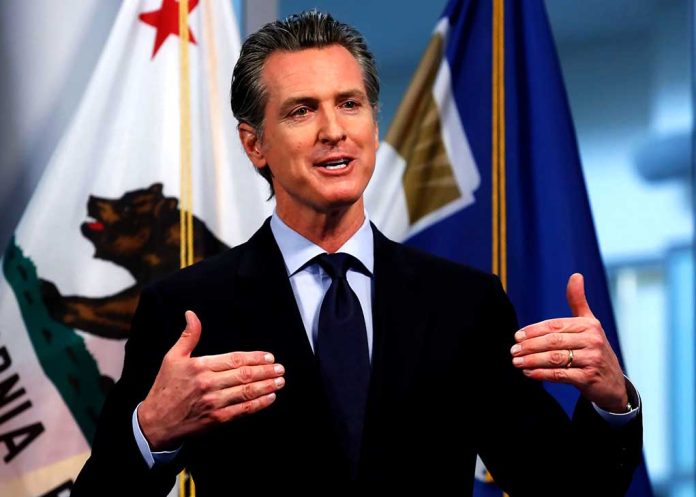
California Governor Gavin Newsom’s shocking reversal on free healthcare for illegal immigrants reveals the unsustainable $9.5 billion cost that has now forced him to propose ending the program amid a staggering $12 billion budget deficit.
Key Takeaways
- Governor Newsom has proposed ending free Medi-Cal for illegal immigrant adults by requiring a $100 monthly premium starting in 2027 and freezing new enrollments potentially next year.
- The program’s cost has exploded from initial projections of $2.7 billion annually to $9.5 billion, contributing to California’s $12 billion budget deficit.
- The proposed changes would save California approximately $5.4 billion by 2028.
- Emergency care, maternity services, and healthcare for children of illegal immigrants will remain unaffected by the changes.
- California became the first state to offer free Medi-Cal benefits to all low-income adults regardless of immigration status in January 2024.
Newsom’s Budget Crisis Forces Healthcare Program Cuts
Governor Gavin Newsom’s revised May budget proposal includes the dramatic scaling back of California’s free healthcare program for illegal immigrants, a progressive policy that has become financially untenable. The program, which expanded in January 2024 to cover all low-income adults regardless of immigration status, has seen costs skyrocket to $9.5 billion, more than triple the initial projection of $2.7 billion annually. This explosive growth in expenditure has contributed significantly to California’s projected $12 billion budget deficit, forcing Newsom to make difficult decisions about the program’s future.
Under the new proposal, illegal immigrant adults currently enrolled in Medi-Cal would be required to pay a $100 monthly premium beginning in 2027. Additionally, the state would freeze new enrollments in the program, potentially as early as next year. These changes are expected to generate substantial savings, with projections indicating the state could conserve approximately $5.4 billion by 2028. Despite these cuts, certain services will remain intact, including emergency care, maternity services, and coverage for children of unauthorized immigrants.
Financial Reality Confronts Progressive Policies
The announcement marks a significant turning point for Newsom’s administration, which had championed the expansion of healthcare benefits to illegal immigrants as a hallmark progressive achievement. California became the first state to offer full Medi-Cal benefits to all low-income adults regardless of immigration status earlier this year. This policy reversal underscores the financial realities confronting even the wealthiest states when implementing such expansive welfare programs for non-citizens. The unsustainable costs have forced a reassessment of priorities amid growing budget pressures.
“California taxpayers should be outraged that they face massive tax hikes in this budget while illegal immigrants are being given nearly $10 billion in free taxpayer-funded healthcare coverage,” said California state Rep. Carl DeMaio
Earlier this year, Newsom signed Assembly Bill 100 to approve emergency funds aimed at closing a $2.8 billion budget gap and extending health coverage through June for nearly 15 million low-income residents. However, this stopgap measure proved insufficient to address the larger fiscal challenges facing the state. Now lawmakers must pass a balanced budget by the constitutional deadline of June 15, requiring difficult decisions about which programs to prioritize and which to scale back or eliminate altogether.
Critics Validate Concerns About Sustainability
Conservative critics have long argued that providing free healthcare to illegal immigrants would not only strain state resources but could also serve as a magnet for additional illegal immigration. The exponential growth in program costs appears to validate these concerns, as the financial burden has far exceeded initial projections. The policy has drawn attention not only from state lawmakers but also from federal officials concerned about the broader implications of such programs.
“Working as a doctor in California, I saw that free health care is a magnet for illegal immigration. We should focus on making America healthy again instead of straining our medical system and burdening American taxpayers. Attempting to provide free health care to the world is not sustainable. Compassion that cannot be sustained is not compassion,” said Sen. Bill Cassidy (R-La.)
The reversal highlights a fundamental challenge facing progressive governance: the tension between idealistic policy goals and fiscal sustainability. While providing healthcare to all residents regardless of immigration status may align with certain humanitarian values, the financial realities of such programs often prove more complex than initially acknowledged. As California grapples with this budget crisis, other states considering similar expansions of benefits to illegal immigrants may need to reassess the long-term viability of such policies in light of California’s experience.





